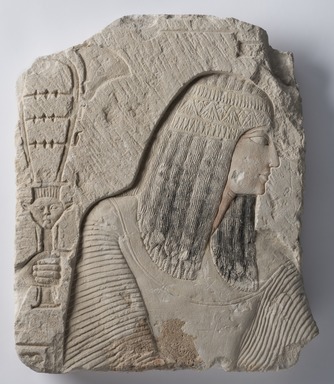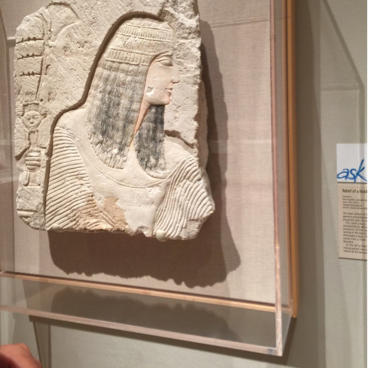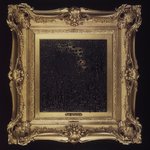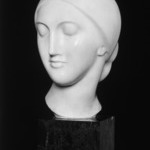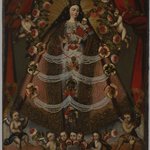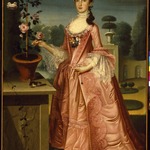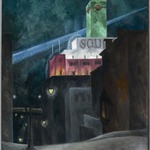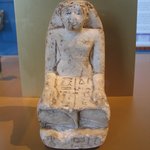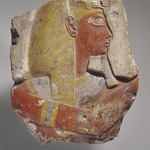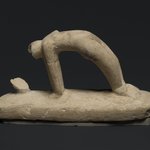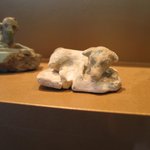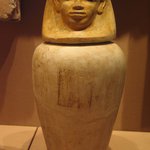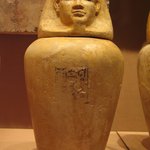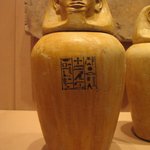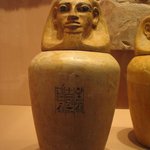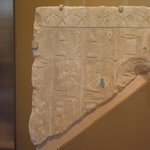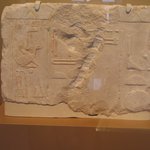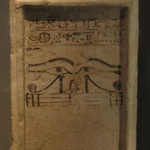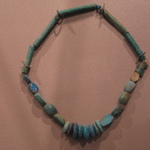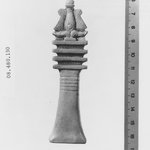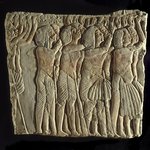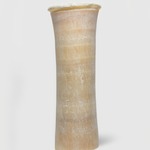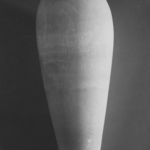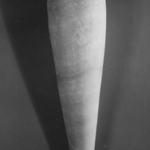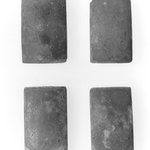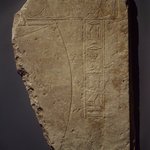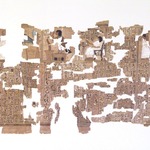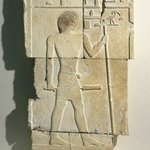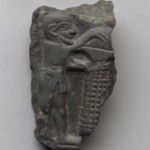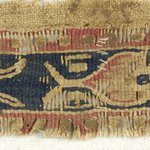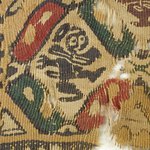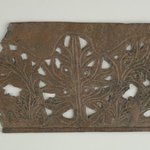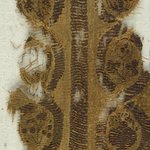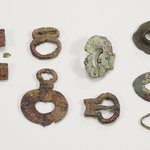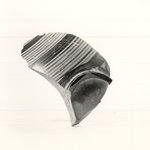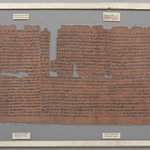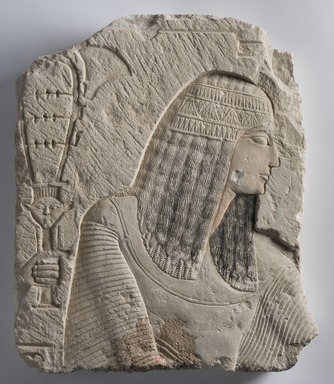
Relief of a Nobleman
Egyptian, Classical, Ancient Near Eastern Art
The exact context of this relief is unknown. The anonymous noble's garment and elaborate wig with lotus flower fillet and intricate locks are perfect attire for an offering scene in the underworld.
The relief clearly illustrates the legacy of the artistic style championed by Akhenaten, Egypt's so-called heretic pharaoh. The projection of the face and neck beyond the wig and the deep carving of the rear of the head are details that continued long after Akhenaten's reign. The elegant treatmnent suggests that the relief comes from a tomb at Saqqara, a vast cemetery in the region of Memphis. At the left a hand holds a sistrum (or rattle) and a flower. The missing person was surely a woman, either the wife or some other relative of the deceased.
MEDIUM
Limestone, pigment
DATES
ca 1292–1075 B.C.E.
DYNASTY
Dynasty 19 to Dynasty 20
PERIOD
New Kingdom
DIMENSIONS
20 3/16 × 17 1/4 × 3 1/2 in. (51.3 × 43.8 × 8.9 cm) (show scale)



COLLECTIONS
Egyptian, Classical, Ancient Near Eastern Art
ACCESSION NUMBER
36.261
CREDIT LINE
Charles Edwin Wilbour Fund
PROVENANCE
Archaeological provenance not yet documented; before 1925, acquired by the Scheurleer Museum, the Hague, the Netherlands; 1936, purchased from the Scheurleer Museum by the Jean Capart for the Brooklyn Museum.
Provenance FAQ
CATALOGUE DESCRIPTION
Painted limestone relief, probably from a tomb, of the head and bust of a man wearing an elaborate headdress. Sunk relief.
Probably a fragment from a large scene in the offering chamber of a tomb. The man wears a very elaborate headdress and garment typical of the Late Empire Period. His wig is beautifully executed and is most elaborate in detail. He faces the spectator’s right in a conventional pose. Behind him is a very large sistrum grasped in a hand. Probably this fragment is from the figure of his wife. There is no inscription. The workmanship is excellent.
MUSEUM LOCATION
This item is not on view
CAPTION
Relief of a Nobleman, ca 1292–1075 B.C.E. Limestone, pigment, 20 3/16 × 17 1/4 × 3 1/2 in. (51.3 × 43.8 × 8.9 cm). Brooklyn Museum, Charles Edwin Wilbour Fund, 36.261. Creative Commons-BY (Photo: Brooklyn Museum, 36.261_overall01_PS22.jpg)
IMAGE
overall, 36.261_overall01_PS22.jpg. Brooklyn Museum photograph, 2024
"CUR" at the beginning of an image file name means that the image was created by a curatorial staff member. These study images may be digital point-and-shoot photographs, when we don\'t yet have high-quality studio photography, or they may be scans of older negatives, slides, or photographic prints, providing historical documentation of the object.
RIGHTS STATEMENT
Creative Commons-BY
You may download and use Brooklyn Museum images of this three-dimensional work in accordance with a Creative Commons license. Fair use, as understood under the United States Copyright Act, may also apply.
Please include caption information from this page and credit the Brooklyn Museum. If you need a high resolution file, please fill out our online application form (charges apply).
For further information about copyright, we recommend resources at the United States Library of Congress, Cornell University, Copyright and Cultural Institutions: Guidelines for U.S. Libraries, Archives, and Museums, and Copyright Watch.
For more information about the Museum's rights project, including how rights types are assigned, please see our blog posts on copyright.
If you have any information regarding this work and rights to it, please contact copyright@brooklynmuseum.org.
RECORD COMPLETENESS
Not every record you will find here is complete. More information is available for some works than for others, and some entries have been updated more recently. Records are frequently reviewed and revised, and we welcome any additional information you might have.
